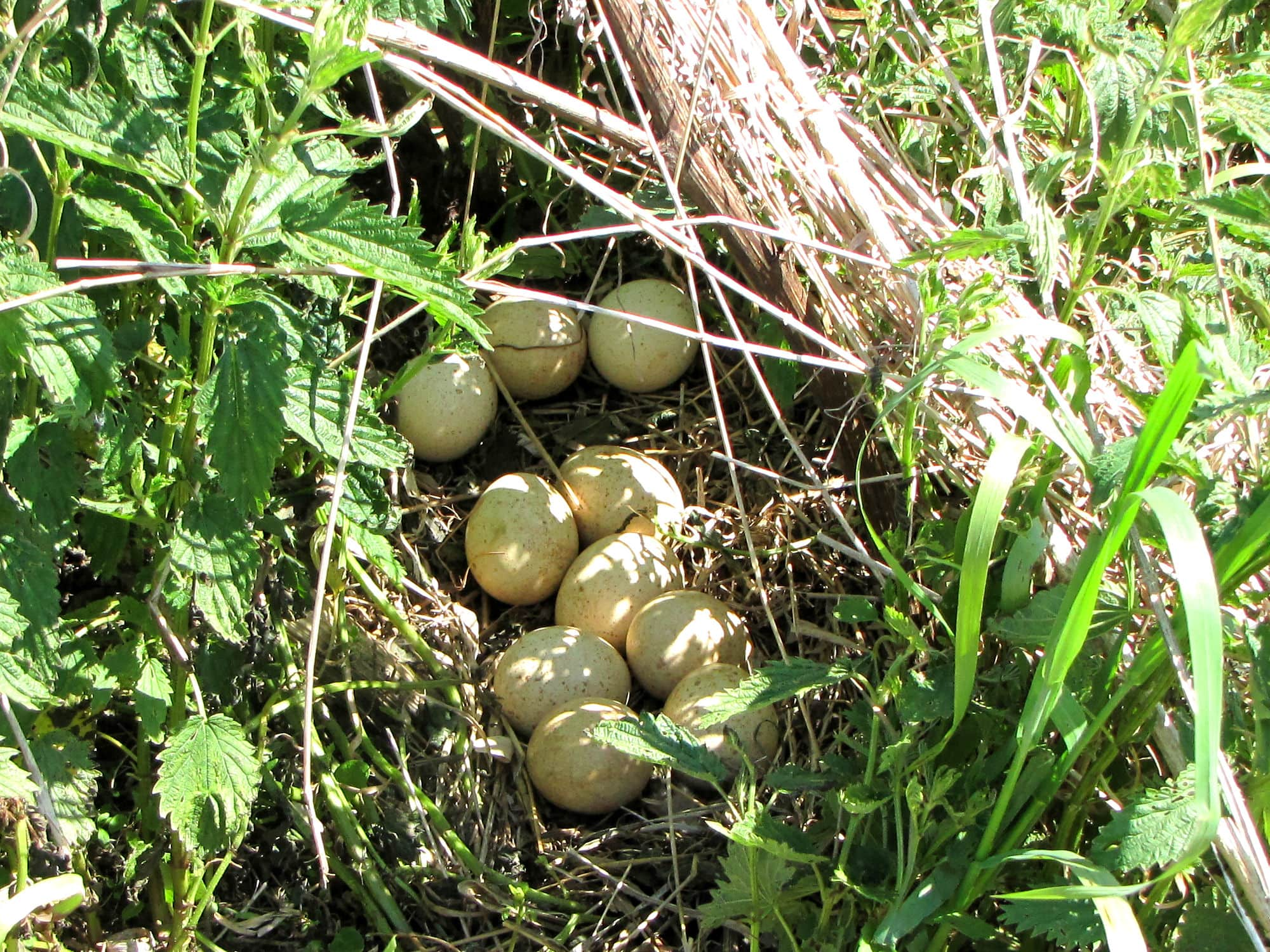Washington Volunteers Gear Up for Easter Turkey Egg Hunt
OutdoorHub Reporters 03.31.15

Is there really such a thing as too many turkeys? Well if you live near a town with a high turkey population, such as South Hill in Washington, then you might agree that too many gobblers is a bad thing. According to KXLY, the turkey problem in South Hill has gotten so bad that residents often see gangs of up to 20 birds roam the streets. Some homeowners do not seem to mind the turkeys, while others say that the birds damage property, roost in trees, leave feces everywhere, and are generally obnoxious.
“They got out of the way pretty quickly,” resident Jule Shultz told KREM2, “but there were a couple toms that didn’t care if I was there.”
Since December, the Washington Department of Fish and Wildlife (DFW) has received more than 60 complaints regarding the unruly birds. Officers attempted to remove the turkeys and relocate them elsewhere, but they simply proved to be too many and too hard to catch. It is now believed that more than 150 turkeys call South Hill home.
“We just don’t want this population to continue to grow,” DFW wildlife conflict specialist Joey McCanna said. “We know that there are people out there that don’t like them and there are people who like them too.”
Without an urban hunting season, what is there to do? Well, for South Hill and other towns with a similar problem, officials are turning to an older method of turkey management: egg hunts. Starting this Easter, volunteers working with the DFW will be tracking down turkey nests to remove eggs or treat them with oil.
“This has been done with geese on golf courses for several years so now we are going to try it on turkeys,” McCanna said. “We are going to do the egg removal and addling to see what works best for the future.”
Normally, taking or possessing wild turkey eggs is illegal in many states. Unlike chickens, laying an egg can be an exhaustive process for wild turkeys. The average hen lays just about one egg a day and up to a dozen eggs over a two-week period. The hen will then incubate her brood for about a month. Since they lay relatively few eggs, this form of population control can be quite successful.
While there might not be a lot of chances to harvest wild turkey eggs, you can still find the domestic variety for sale. Generally, turkey eggs are larger and more expensive than chicken eggs, but taste much the same. Despite their relative rarity today, turkey eggs were once a staple of American cuisine and were even transported over to Europe for consumption.

